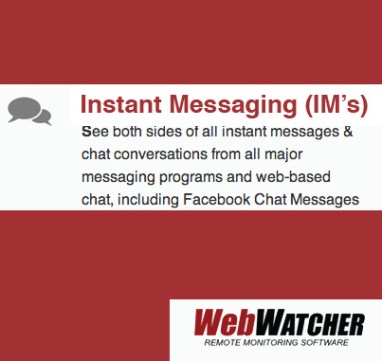For most middle school and high school students, owning a smartphone is simply a part of the teen experience. According to Pew Research nearly all teens have a smartphone. In fact, mobile technology is so commonplace that only 5 percent of teens lack access to these popular devices.
But what makes the smart phone so popular? The allure rests in the device’s capabilities. Obviously, the phone opens up communication channels between teens and parents; if they need to stay after school, the phone lets them send a quick text to mom or dad. Teens can use the calendar app to plug in assignment info or test/project dates so no deadline is missed. Convenience rests in every app on the device—from GPS functions, accessing email and even consulting online dictionaries and thesauruses.
For parents, though, the smartphone provides a safety net, a digital tether to kids. Parents can find their teen’s location, they can text or call. The phone—in the eyes of many parents—helps keep kids and teens safe by allowing them to have a means to call for help at any time.
However, the communication convenience of the smartphone comes at a price. The same device that eases the minds of parents also can potentially put kids and teens in danger by exposing them to online predators, cyber bullies or graphic content.
An all access pass to apps, social media and the online world requires parents to be aware and alert of these potential dangers. Parenting means setting boundaries to ensure safety, and teens must understand that using a smartphone has rules and limitations. Parents can set these limitations easily by utilizing monitoring software on smartphones. But what should parents monitor? And how do you find the best cell phone tracker to keep teens safe?

Software Should Help Set Boundaries
Monitoring software should never translate to ‘spying.’ Parents should discuss the software with teens and make monitoring a provision for smart phone use. Communication is vital and teens should never feel that their privacy is being violated. Instead, sit down with teens and explain how the a cell phone tracker will be used and why.
Some parents want access to everything: text messages, internet history, screen shots and instant messages. Others set fewer boundaries and use software to simply limit what teens can download and view online. Some apps are not appropriate for younger teens, and parents block them to avoid temptation.
Each monitoring software program has its own distinct capabilities. Research your options to find the program that will provide the best safety features for your family. Before you hand over the smartphone to your teen, though, make sure they understand that monitoring is a condition of the phone privilege.
Put a Priority on Social Media Monitoring
Most teens are active on social media platforms. Some use social media for gaming purposes or just as a means to communicate with friends. Social media, though, may put kids at risk for cyber bullying, online predators and other issues. Some teens simply don’t have the life experience to understand that what they put out in cyberspace is forever; you never know who will find an image, a tweet or a video and share it.
Monitoring social media accounts can allow parents to see what their teen is posting and help facilitate discussions about online behaviors and etiquette. Again, though, teens should be aware that parents are reviewing their social media accounts. For many teens, this may help create a sense of accountability and, hopefully, they will think twice before posting something.
Content on social media accounts also could show that a teen is being bullied online or being targeted by a predator. Ultimately, knowledge is power…and in the online world, knowledge is also a huge safety net for parents.
How Internet History Reveals Potential Issues
Some parents don’t necessarily want to see every trace that a teen leaves online. However, internet history is a very important footprint. Reviewing internet history can reveal that teens were searching for inappropriate images and viewing sites that aren’t meant to be seen by minors. Some parents also could discover that their teen is searching for content that might put them at risk in other ways. There are many sites dedicated to eating disorders that could encourage dangerous and unhealthy behaviors (these sites are often known as pro-ana or pro-mia).
Search results also could indicate that a teen is struggling with issues such as depression or anxiety. Viewing internet history can help parents begin important discussions with their teens.
Review the Screenshots, Too
The best cell phone tracker software also should show parents any ‘receipts’ that teens have saved. ‘Receipts’ in teen-speak refers to any items that they have saved; sometimes images like screengrabs are innocent and kept for sentimental reasons–maybe a friend complimented them or a celebrity gave them a retweet. Some teens screengrab Snaps they receive via Snapchat as a way to pass them on to others. These images could be benign…or they could be explicit. Snapchat specifically tells users in its Safety Center that Snaps can be screen grabbed by recipients, and there are many articles on the Internet that show teens how to do this undetected…and that is an issue for parents.
Reviewing screengrabs or screenshots lets parents see what teens are viewing–and perhaps sharing–on social media platforms. Like any information revealed through tracking software, screenshots and their content should be discussed. However, parents also should be prepared to set consequences for inappropriate or dangerous behaviors. Parents need to discuss the legal ramifications of image-sharing with teens, because sharing or even receiving certain images can hold serious consequences.
Stop Worrying and Start Watching
Researching software options allows parents to find the cell phone tracker that works for their family’s specific needs. However, before installing software on a teen’s phone, parents should insist on having a discussion with them about why the software is necessary. Software should never be used covertly but as a means to monitor your teens. Certain capabilities like monitoring social media, text messages, internet history and viewing screenshots can help parents have a big picture about their teen’s online behaviors and risk factors.
WebWatcher provides parents with a comprehensive monitoring program to ensure that teens learn to be accountable for their online behaviors and habits. WebWatcher enables parents to read text messages, review screengrabs, monitor social media accounts and more! Ultimately, as adults, the responsibility is theirs…and so are the consequences. Stop worrying and start watching!




